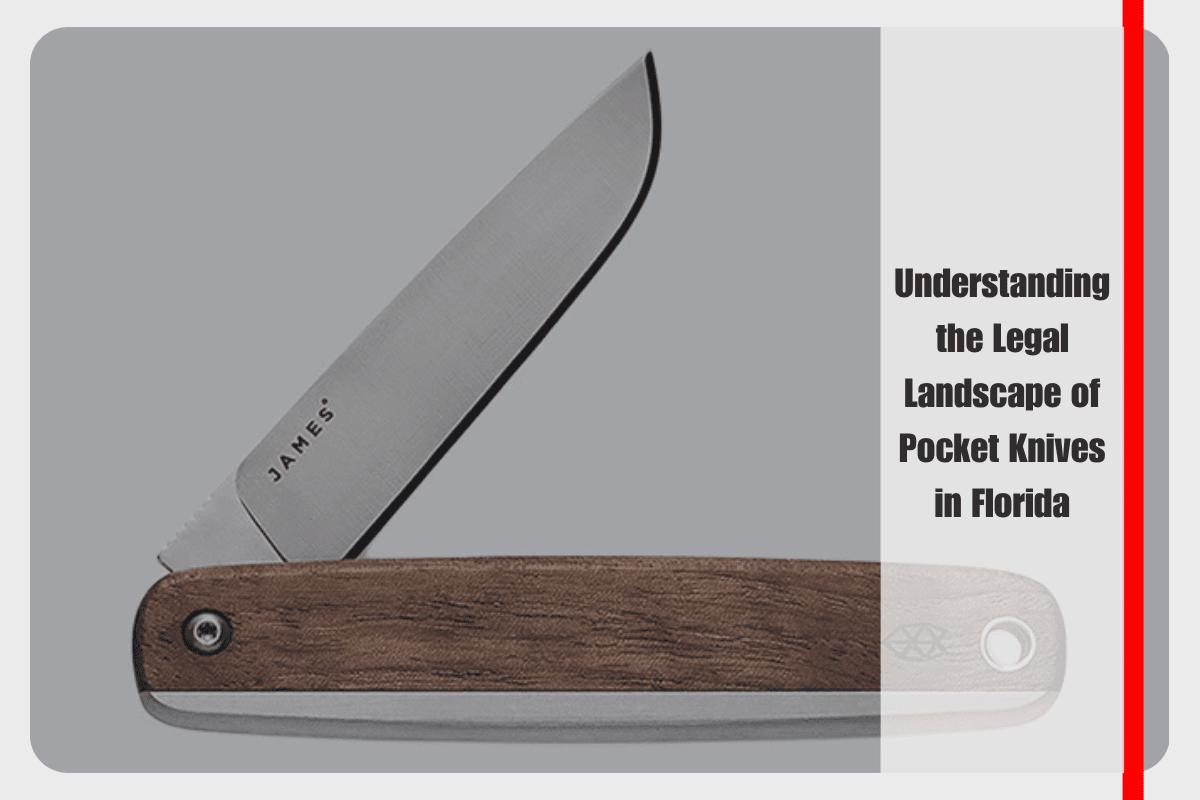Florida has some of the most permissive knife laws in the United States, but there are important distinctions and restrictions, especially regarding pocket knives, concealed carry, blade length, and certain locations.
The law in Florida generally allows individuals to own and carry most types of knives, including folding knives, fixed-blade knives, butterfly knives, automatic knives (switchblades), and multi-tools. However, ballistic knives—those with blades that can be ejected—are completely illegal to own or carry in the state.
Pocket knives are a special category under Florida law. The state defines a “common pocket knife” as a folding knife with a blade four inches or less in length. This definition, established by the Florida Supreme Court and a 1951 Attorney General opinion, is still in use today. If your folding knife fits this definition, you can carry it openly or concealed without a permit. This exemption also covers typical Swiss Army knives and similar multi-tools.
For knives with blades longer than four inches, the rules change. Carrying such a knife concealed (hidden from view) requires a concealed weapons permit. Carrying a concealed knife with a blade over four inches without a permit is a first-degree misdemeanor and can result in up to a year in jail and a $1,000 fine. However, open carry of most knives is generally legal, regardless of blade length, as long as the knife is not a ballistic knife and is not carried in a manner intended to threaten or harm others.
Recent legal changes have further relaxed restrictions. As of July 1, 2023, Florida law (HB 543) allows for permitless concealed carry of knives, including pocket knives and many others, for individuals 21 years or older. However, you must carry identification and present it if requested by law enforcement. Minors may carry pocket knives with parental consent, but it is illegal to sell or give a knife to a minor without such permission.
There are location-based restrictions that override general knife-carry laws. Knives are strictly prohibited in certain places, including schools, government buildings, courthouses, airports, polling places, and any location where illegal activities are occurring. Even common pocket knives cannot be carried in these areas.
Intent and context also matter. Carrying a knife for legitimate purposes, such as work, camping, or fishing, is generally permissible. However, using or displaying a knife in a threatening way can lead to criminal charges, regardless of the knife type or blade length.
Carrying a pocket knife with a blade of four inches or less is legal in Florida, both openly and concealed, without a permit. For knives with longer blades, a concealed carry permit is required unless you are openly carrying the knife. Always avoid carrying knives in restricted locations and be mindful of how you use or display your knife, as intent can affect legal outcomes. These laws are designed to balance personal freedom with public safety, so understanding and following them is crucial for anyone carrying a knife in Florida.
Sources
[1] https://nobliecustomknives.com/us-knife-laws/florida-knife-laws/
[2] https://www.thelawofwe.com/what-knives-are-illegal-in-florida/
[3] https://www.battlbox.com/blogs/carry-laws/is-it-legal-to-open-carry-a-knife-in-florida
[4] https://www.thedensonfirm.com/weapon-charges/florida-knife-laws-everything-you-need-to-know/
[5] https://www.carltonforestgroup.com/understanding-florida-knife-length-laws-the-definitive-guide/












